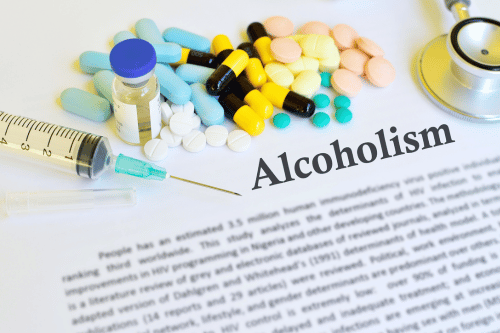

An inpatient alcohol treatment facility provides a structured environment for individuals struggling with alcohol addiction. At a treatment center like this, a patient lives onsite for a set length of stay, receiving therapy, psychiatry services, and medical supervision. These rehab centers are designed to help patients achieve sobriety, prevent relapse, and improve overall health and quality of life.
An inpatient alcohol treatment facility is a rehab program where patients remain at the treatment center full-time. This type of rehab is most effective for those with substance dependence, repeated relapse, or dual diagnosis conditions. By living in a clinic-like setting, patients have constant access to medical care, nursing staff, and therapy sessions.
The admission process begins with a phone call or online inquiry. A staff member collects information about the patient’s health, history of substance abuse, and mental health concerns. After evaluation, insurance verification is completed to confirm coverage under the patient’s health insurance plan, which may include detox, medication, and therapy.
Once coverage is established, patients undergo a medical and psychiatric evaluation at the treatment center. This step identifies co-occurring conditions such as anxiety or opioid dependence. Customized treatment programs are then created to address both immediate medical needs and long-term recovery goals.

Many patients begin recovery with medical detox, which is supervised by physicians and nursing staff. Medication may be used to ease withdrawal symptoms such as tremors, seizures, or severe anxiety. Detox in an inpatient alcohol treatment facility provides safety, comfort, and a smoother transition into structured rehab.
Alcohol addiction affects physical health and mental health simultaneously. Conditions like anxiety, depression, and stress often appear alongside substance abuse. Inpatient treatment programs provide psychiatry services, therapy, and medical support to stabilize both the body and mind.
Dual diagnosis is common for patients with alcohol addiction who also suffer from mental health disorders such as PTSD, bipolar disorder, or generalized anxiety. An inpatient alcohol treatment facility offers integrated care to address both issues. Treating addiction and mental health treatment together lowers relapse risk and supports long-term sobriety.

Therapy is central to inpatient rehab centers. Individual therapy helps patients understand behavior patterns and the root causes of addiction. Group therapy encourages peer support, while family therapy works to rebuild relationships damaged by substance dependence.
In addition to traditional therapy, many rehab centers use evidence-based modalities such as Cognitive Behavioral Therapy (CBT) and Dialectical Behavior Therapy (DBT). CBT helps patients identify harmful thought patterns that lead to substance abuse, while DBT teaches emotional regulation and coping skills. Some facilities also integrate holistic therapies like yoga, meditation, and art therapy to support overall mental health.
Inpatient programs provide 24/7 nursing and medical oversight. Patients may require medication to manage co-occurring opioid or drug dependence, mental health conditions, or withdrawal symptoms. Nursing teams also monitor overall health and adjust care based on daily evaluations.
Patients at an inpatient alcohol treatment facility follow a structured schedule that balances therapy, medical care, and rest. A typical day may begin with morning meditation or wellness activities, followed by group therapy sessions. Afternoons often include individual therapy, psychiatric evaluations, and medication management, while evenings may focus on recreational activities, journaling, or support group meetings.
This structured daily routine reduces stress, encourages accountability, and allows patients to practice new coping skills in a safe environment. By the end of the program, patients are more confident in handling challenges outside the treatment center.

Psychiatry is critical for patients who have both addiction and mental health concerns. Psychiatrists prescribe medication when necessary, track behavior changes, and guide patients through mental health treatment. Ongoing psychiatric care helps stabilize mood and prevents relapse during and after rehab.
Health insurance makes treatment more accessible for patients and families. Insurance coverage often includes detox, medication, therapy, and nursing care. Insurance verification ensures that patients know their benefits before entering a program at a treatment center.
The length of stay depends on the severity of addiction and progress made during rehab. Some patients complete 30-day programs, while others stay for 60 or 90 days. Longer programs allow more time for therapy, skill-building, and relapse prevention strategies.
Inpatient care provides 24-hour support, while outpatient programs allow patients to live at home and attend therapy part-time. Outpatient care can be a step-down option after completing an inpatient program. Both forms of treatment programs are valuable, but inpatient rehab is best for severe substance dependence.
Addiction is recognized as a disease that changes brain chemistry and behavior. At a recovery village or inpatient clinic, alcohol addiction is treated with medical care, therapy, and psychiatry. Viewing addiction as a disease helps reduce stigma and encourages more people to seek treatment.

Relapse is a risk during recovery, but inpatient alcohol treatment provides strategies to prevent it. Patients learn coping skills, stress management, and behavioral techniques through therapy. After discharge, many continue outpatient care to strengthen sobriety.
Medication can play a supportive role in treatment programs. It may be prescribed to reduce alcohol cravings, manage co-occurring drug or opioid dependence, or stabilize mental health symptoms like anxiety. Proper medication management by physicians and psychiatrists improves recovery outcomes.
A reputable inpatient alcohol treatment facility should be accredited by organizations like the Joint Commission. Accreditation confirms that the treatment center meets high standards for patient safety, nursing care, and effective therapy programs. Families can trust accredited rehab centers to provide expert care.
Stress often drives substance abuse and relapse. In an inpatient program, behavioral therapy teaches patients healthier ways to manage stress. By replacing destructive behavior with positive coping skills, patients build stronger mental health.
A recovery village or inpatient treatment center offers community-based healing. Patients support one another through group therapy, shared activities, and accountability. This sense of belonging strengthens motivation and reduces feelings of isolation during rehab.
After completing an inpatient program, many patients move into ambulatory care or outpatient rehab. This allows them to continue therapy, psychiatry, and medication management while living at home. Outpatient care reinforces sobriety and provides ongoing support during early recovery.
Family involvement can significantly influence recovery outcomes. Inpatient alcohol treatment facilities often include family therapy to rebuild trust, improve communication, and create a supportive home environment. Engaging loved ones in therapy reduces stress and lowers the chance of relapse after discharge. Families are also encouraged to join support groups, which provide guidance on how to cope with a loved one’s addiction.
Patients who complete inpatient alcohol treatment often see major improvements in quality of life. Sobriety allows them to restore health, rebuild careers, and improve relationships. Long-term follow-up shows that inpatient rehab centers significantly reduce relapse rates compared to untreated substance dependence.
Recovery does not end when a patient leaves the treatment center. Inpatient alcohol treatment facilities prepare individuals for long-term sobriety through discharge planning, alumni support groups, and continued psychiatric care. Patients who remain connected to outpatient therapy and recovery communities are more likely to maintain sobriety and protect their overall health.
Aftercare is a critical part of recovery. Many inpatient alcohol treatment facilities offer alumni networks, sober living options, and access to local support groups. These programs provide ongoing accountability and help patients transition back into daily life while maintaining sobriety.
Some treatment centers also partner with community clinics and recovery organizations to provide ambulatory care and extended outpatient services. Patients benefit from therapy check-ins, psychiatric follow-ups, and relapse prevention groups, ensuring that recovery remains strong over the long term.
The ultimate goal of an inpatient alcohol treatment facility is to help patients restore balance and independence. Addressing addiction, dual diagnosis, and stress management opens the door to a healthier future. Patients leave with new coping skills, stronger mental health, and improved overall health.
Selecting a treatment center requires careful research. Families should review accreditation, therapy options, insurance coverage, and available psychiatry services. The best rehab centers provide expert care, customized programs, and support for long-term sobriety.
At the end of treatment, patients undergo an evaluation to measure progress. Staff create a discharge plan that includes outpatient therapy, psychiatry follow-ups, and relapse prevention resources. This long-term plan helps patients stay focused on sobriety even after leaving the treatment center.
At Sullivan Recovery, as an in-network provider we work with most insurance plans, such as:
And More
If you or a loved one are struggling with mental health challenges or substance abuse, reach out to Sullivan Recovery today. Our team of compassionate professionals is here to support your journey towards lasting well-being. Give us a call at 949-836-7180.
You may benefit from an inpatient alcohol treatment facility if you’ve experienced multiple relapses, have a dual diagnosis, or cannot maintain sobriety in your current environment. Inpatient care provides 24/7 medical, psychiatric, and therapeutic support, which outpatient care does not. A professional evaluation can determine the best level of treatment for your needs.
Yes, most inpatient alcohol treatment facilities allow family visits during designated times. Many centers also encourage family therapy sessions to strengthen support systems. Each treatment center has its own visitation policies, so it’s best to confirm in advance.
Patients are usually encouraged to bring personal items such as comfortable clothing, hygiene products, and approved reading material. Items that could trigger relapse, such as alcohol, drugs, or unapproved medications, are strictly prohibited. Facilities provide a full list of permitted and restricted items before admission.
Many inpatient facilities offer specialized programs tailored to unique groups, including working professionals, young adults, or older adults. These programs address specific stressors, behavior patterns, and lifestyle challenges. Choosing a program that aligns with your background can make recovery more effective.